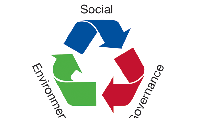O nas
Sustainability in Procurement
Our focus is mainly on our suppliers, their products and services, and the supply chain as a whole.
In order to pursue sustainability in procurement we believe it is essential that our suppliers follow our commitment. Our Supplier Code of Conduct as well as the “Together for Sustainability” initiative play an important role for the integration and development of sustainability in procurement.
Marikana: What is BASF’s commitment?
We are involved on three levels to help improve the living and working conditions in and around Marikana:
- We are working intensively with Lonmin and, according to our capabilities, we are exerting our influence to ensure that the company complies with its legal obligations within the framework of social and work plans as well as with the UN Global Compact principles it has committed to. To this end, we are working together with Lonmin on the operational as well as the management level, and we have conducted reviews of the working conditions. We are thus fulfilling international standards.
- In addition to these standards, we initiated a sector initiative for the South African mining companies to help improve the situation in the platinum mining belt in South Africa. In the sector initiative, we have set the goal with other industry partners to audit all mine operations in South Africa with a more comprehensive audit methodology. In this context a new audit methodology will be introduced that we developed for Lonmin's second audit with international human rights experts. We introduced this methodology to the industry initiative “Together for Sustainability” and it was adopted as an industry standard. BASF is part of a fabricators working group that is organizing the mine audits.
- We have also been intensively exchanging information on this topic with civil society and politicians in South Africa and Germany for years. For example, in December 2017, the BASF Management went to the Bench Marks Foundation to meet with Bishop Seoka and John Capel, CEO of the foundation. We also had dialogues with Lonmin, Union representatives, community representatives, Amnesty International and other NGOs. We are in a continuous dialogue with Lonmin to follow-up with the implementation of their action plan and also to stay up to speed with the current situation on site.
As part of the collaboration with Lonmin, BASF is focused to support the company in finding long-term solutions and undertake efforts to overcome identified problems. This collaboration is based on clear goals and our expectation that measurable, verifiable and documented progress is being made on the part of Lonmin.

